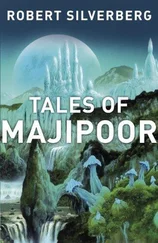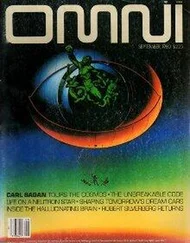Robert Silverberg - Getting to Know the Dragon
Здесь есть возможность читать онлайн «Robert Silverberg - Getting to Know the Dragon» весь текст электронной книги совершенно бесплатно (целиком полную версию без сокращений). В некоторых случаях можно слушать аудио, скачать через торрент в формате fb2 и присутствует краткое содержание. Год выпуска: 2003, ISBN: 2003, Издательство: HarperCollins, Жанр: Альтернативная история, на английском языке. Описание произведения, (предисловие) а так же отзывы посетителей доступны на портале библиотеки ЛибКат.
- Название:Getting to Know the Dragon
- Автор:
- Издательство:HarperCollins
- Жанр:
- Год:2003
- ISBN:978-0-380-97859-5
- Рейтинг книги:5 / 5. Голосов: 1
-
Избранное:Добавить в избранное
- Отзывы:
-
Ваша оценка:
- 100
- 1
- 2
- 3
- 4
- 5
Getting to Know the Dragon: краткое содержание, описание и аннотация
Предлагаем к чтению аннотацию, описание, краткое содержание или предисловие (зависит от того, что написал сам автор книги «Getting to Know the Dragon»). Если вы не нашли необходимую информацию о книге — напишите в комментариях, мы постараемся отыскать её.
Getting to Know the Dragon — читать онлайн бесплатно полную книгу (весь текст) целиком
Ниже представлен текст книги, разбитый по страницам. Система сохранения места последней прочитанной страницы, позволяет с удобством читать онлайн бесплатно книгу «Getting to Know the Dragon», без необходимости каждый раз заново искать на чём Вы остановились. Поставьте закладку, и сможете в любой момент перейти на страницу, на которой закончили чтение.
Интервал:
Закладка:
But—although we are familiar with the general outlines of Trajan’s voyage—the journal that he kept, full of highly specific detail, has been lost for centuries. Which is why I felt such delight when one of my researchers, snuffling about in a forgotten corner of the Office of Maritime Affairs in Sevilla, reported to me early this year that he had stumbled quite accidentally upon that very journal. It had been filed all that time amongst the documents of a later reign, buried unobtrusively in a pack of bills of lading and payroll records. I had it shipped to me here in Tauromenium by Imperial courier, a journey that took six weeks, for the packet went overland all the way from Hispania to Italia—I would not risk so precious a thing on the high sea—and then down the entire length of Italia to the tip of Bruttium, across the strait by ferry to Messana, and thence to me.
Was it, though, the richly detailed narrative I yearned for, or would it simply be a dry list of navigators’ marks, longitudes and latitudes and ascensions and compass readings?
Well, I would not know that until I had it in my hands. And as luck would have it, the very day the packet arrived was the day the Caesar Demetrius returned from his month’s sojourn in Africa. I barely had time to unseal the bulky packet and run my thumb along the edge of the thick sheaf of time-darkened vellum pages that it contained before a messenger came to me with word that I was summoned to the Caesar’s presence at once.
The Caesar, as I have already said, is an impatient man. I paused only long enough to look beyond the title page to the beginning of the text, and felt a profound chill of recognition as the distinctive backhanded cursive script of Trajan Draco rose to my astonished eyes. I allowed myself one further glimpse within, perhaps the hundredth page, and found a passage that dealt with a meeting with some island king. Yes! Yes! The journal of the voyage, indeed!
I turned the packet over to the major-domo of my villa, a trustworthy enough Sicilian freedman named Pantaleon, and told him exactly what would happen to him if any harm came to a single page while I was away.
Then I betook myself to the Caesar’s hilltop palace, where I found him in the garden, inspecting a pair of camels that he had brought back with him from Africa. He was wearing some sort of hooded desert robe and had a splendid curving scimitar thrust through his belt. In the five weeks of his absence the sun had so blackened the skin of his face and hands that he could have passed easily for an Arab. “Pisander!” he cried at once. I had forgotten that foolish name in his absence. He grinned at me and his teeth gleamed like beacons against that newly darkened visage.
I offered the appropriate pleasantries, had he had an enjoyable trip and all of that, but he swept my words away with a flick of his hand. “Do you know what I thought of, Pisander, all the time of my journey? Our great project! Our glorious enterprise! And do you know, I realize now that it does not go nearly far enough. I have decided, I think, to make Sicilia my capital when I am Emperor. There is no need for me to live in the cool stormy north when I can so easily be this close to Africa, a place that I now see I love enormously. And so we must build a Senate House here, too, in Panormus, I think, and great villas for all the officials of my court, and a library—do you know, Pisander, there’s no library worthy of the name on this whole island? But we can divide the holdings of Alexandria and bring half here, once there’s a building worthy of housing them. And then—”
I will spare you the whole of it. Suffice it to say that his madness had entered an entirely new phase of uninhibited grandiosity. And I was the first victim of it, for he informed me that he and I were going to depart that very night on a trip from one end of Sicilia to the other, searching out sites for all the miraculous new structures he had in mind. He was going to do for Sicilia what Augustus Caesar had done for the city of Roma itself: make it the wonder of the age. Forgotten now was the plan to begin the building program with the new palace in Tauromenium. First we must trek from Tauromenium to Lilybaeum on the other coast, and back again from Eryx to Syracusae to here, pausing at every point in between.
And so we did. Sicilia is a large island; the journey occupied two and a half months. The Caesar was a cheerful enough traveling companion—he is witty, after all, and intelligent, and lively, and the fact that he is a madman was only occasionally a hindrance. We traveled in great luxury and the half-healed state of my ankle meant that I was carried in a litter much of the time, which made me feel like some great pampered potentate of antiquity, a Pharaoh, perhaps, or Darius of Persia. But one effect of this suddenly imposed interruption in my studies was that it became impossible for me to examine the journal of Trajan VII for many weeks, which was maddening. To take it with me while we traveled and study it surreptitiously in my bedchamber was too risky; the Caesar can be a jealous man, and if he were to come in unannounced and find me diverting my energies to something unconnected to his project, he would be perfectly capable of seizing the journal from me on the spot and tossing it into the flames. So I left the book behind, turning it over to Spiculo and telling him to guard it with his life; and for many a night thereafter, as we darted hither and yon across the island in increasingly more torrid weather, summer having now arrived and Sicilia lying as it does beneath the merciless southern sun, I lay tossing restlessly, imagining the contents of the journal in my fevered mind, devising for myself a fantastic set of adventures for Trajan to take the place of the real ones that the Caesar Demetrius had in his blithe selfishness prevented me from reading in the newly discovered journal. Though I knew, even then, that the reality, once I had the chance to discover it, would far surpass anything I could imagine for myself.
And then I returned at last to Tauromenium; and reclaimed the book from Spiculo and read its every word in three astonishing days and nights, scarcely sleeping a moment. And found in it, along with many a tale of wonder and beauty and strangeness, many things that indeed I would not have imagined, which were not so pleasing to find.
Though it was written in the rougher Latin of medieval days, the text gave me no difficulties. The Emperor Trajan VII was an admirable writer, whose style, blunt and plain and highly fluent, reminded me of nothing so much as that of Julius Caesar, another great leader who could handle a stylus as well as he did a sword. He had, apparently, kept the journal as a private record of his circumnavigation, very likely not meaning to have it become a public document at all, and its survival in the archives seems to have been merely fortuitous.
His tale began in the shipyards of Sevilla: five vessels being readied for the voyage, none of them large, the greatest being only of 120 tons. He gave detailed listings of their stores. Weapons, of course, sixty crossbows, fifty matchlock arquebuses (this weapon having newly been invented then), heavy artillery pieces, javelins, lances, pikes, shields. Anvils, grindstones, forges, bellows, lanterns, implements with which fortresses could be constructed on newly discovered islands by the masons and stonecutters of his crew; drugs, medicines, salves; six wooden quadrants, six metal astrolabes, thirty-seven compass needles, six pairs of measuring compasses, and so forth. For use in trading with the princes of newly discovered kingdoms, a cargo of flasks of quicksilver and copper bars, bales of cotton, velvet, satin, and brocades, thousands of small bells, fishhooks, mirrors, knives, beads, combs, brass and copper bracelets, and such. All this was enumerated with a clerk’s finicky care: reading it taught me much about a side of Trajan Draco’s character that I had not suspected.
Читать дальшеИнтервал:
Закладка:
Похожие книги на «Getting to Know the Dragon»
Представляем Вашему вниманию похожие книги на «Getting to Know the Dragon» списком для выбора. Мы отобрали схожую по названию и смыслу литературу в надежде предоставить читателям больше вариантов отыскать новые, интересные, ещё непрочитанные произведения.
Обсуждение, отзывы о книге «Getting to Know the Dragon» и просто собственные мнения читателей. Оставьте ваши комментарии, напишите, что Вы думаете о произведении, его смысле или главных героях. Укажите что конкретно понравилось, а что нет, и почему Вы так считаете.












